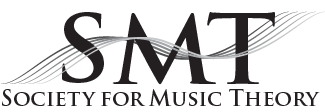Due to changing needs and technologies, the SMT Executive Board has decided to retire SMT Discuss (effective Nov. 9, 2021). Posts will be preserved for archival purposes, but new posts and replies are no longer permitted.
kos2
About
- Username
- kos2
- Joined
- Visits
- 249
- Last Active
- Roles
- Guest
- First Name
- Bob
- Last Name
- Kosovsky
Comments
-
Thanks all for your comments & suggestions. Yes, I had intended my list to be for instructional programs - but it's good to know about non-instructional programs out there!
-
Schillinger's personal papers belong to the New York Public Library: http://archives.nypl.org/mus/20362 I don't see any documents prior to 1918, although it is possible he talked about his training in his correspondence and other personal documents.
-
But in his published writings Schenker illustrated how the text can be intimately linked to a work's musical structure.
-
If one looks solely at Schenker's later published writings, that statement serve as a glib but somewhat accurate assessment. But now that so much of Schenker's earlier and unpublished writings are available, it's possible to draw a more nuanced pict…
-
Nice article by John Covach in the Chronicle of Higher Education, which cites the CMS study: http://chronicle.com/article/Rock-Me-Maestro/151423/?cid=cr&utm_source=cr&utm_medium=en It's behind a paywall - you need to subscribe to the Chroni…
-
I've always considered the "Bamboo DiRT" directory the main starting point for learning about tools and techniques. Several months ago they dropped the "bamboo" so that it's now just DiRT = Digital Research Tools: http://dirtdirectory.org/ I period…
-
Hi Devin! My immediate superficial thoughts for implementing Omeka (or similar packages like WordPress) would be at a higher level. If one wanted to dissect a text passage rich with implications (for example a portion of Artusi commenting on Monte…
-
That was my summary of the conference. I know there are people in SMT who are interested in following up on some of these ideas. People like Kris Shaffer have already tried to incorporate these ideas in his thinking and teaching. Is it not time fo…
-
A very good article from the New York Times, showing how Wikipedia works in relationship to those seeking information, in this case, on Ebola. My favorite lines: The initial skepticism about Wikipedia was mainly structural: how could you trust an a…
-
Thanks for your point of view John, although as I said previously, one can't approach Wikipedia without learning the rules -- it's not a free-for-all dumping ground, but like any peer-review process, has a number of rules that--once learned, are fai…
-
I know this discussion has been dormant for a month, but I wanted to alert subscribers to a recent article in The Chronicle of Higher Education: Wikipedia, a Professor's Best Friend by Dariusz Jemielniak
-
It may not be exactly what you were hoping for, but there are numerous passages in "Four Saints in Three Acts" where Thomson takes advantage of some scheme Stein has set up. Some examples off the top of my had: "Let Lily Lucy...." "They might be…
-
What would be the purpose of this wiki? What audience would it be for? As far as I can tell, it would be for SMT members and the occasional musically-inclined individual. (I'm not going to discuss the construction of such a website which I see as …
-
I've been on Wikipedia for just over 8 years and I don't take as pessimistic view as Devin. One thing I think people may not realize is that Wikipedia is a social encyclopedia. You can't expect to do anything without interacting with other people, …
-
A couple of us have edited Wikipedia. As an example, I strongly believe that the article on retrograde is more complete than can be found in any other published source. I wanted to start working on the article on enharmonicism but that is proving t…
SMT Discuss Manager: smtdiscuss@societymusictheory.org
